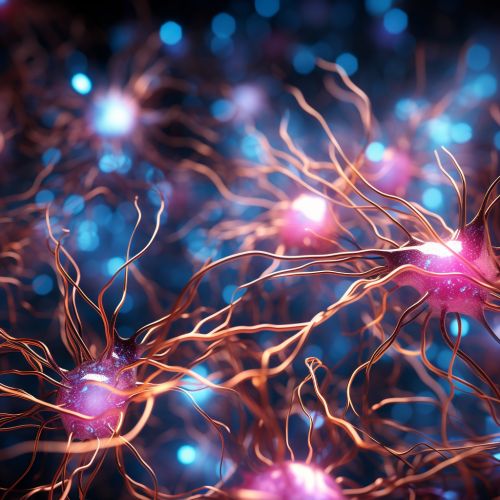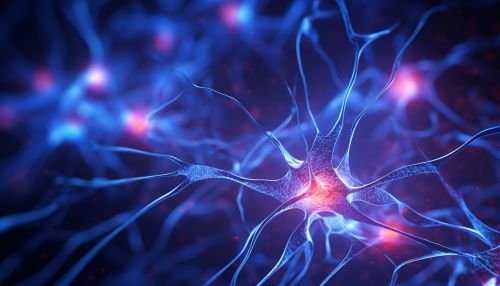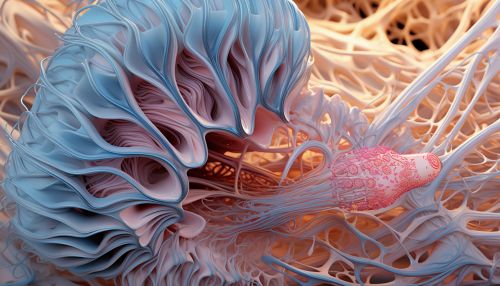Neuroscience of Memory
Overview
The neuroscience of memory encompasses our understanding of how the brain forms, stores, and retrieves memories. It is a branch of neuroscience and psychology that involves the scientific study of the biological substrates that underlie memory and learning. It is a vast field that utilizes a variety of experimental techniques, from molecular biology to cognitive tasks, to investigate how the brain encodes, stores, consolidates, and retrieves information.


Memory Encoding
Memory encoding is the process by which the brain converts sensory input into a form that can be stored and later recalled. This process begins with perception, as the brain processes sensory information from the environment. The brain's neural networks then encode this information into patterns of electrical activity. This activity is modulated by a variety of factors, including attention, emotion, and prior knowledge.
There are several types of memory encoding. Semantic encoding involves the encoding of meaning, such as the meaning of words or concepts. Acoustic encoding involves the encoding of auditory information, such as the sound of someone's voice. Visual encoding involves the encoding of visual information, such as the appearance of a person's face.
Memory Storage
Memory storage is the process by which the brain maintains information over time. This process involves the strengthening of synaptic connections between neurons, a process known as long-term potentiation (LTP). LTP is thought to be a key mechanism underlying learning and memory.
There are several types of memory storage. Short-term memory (STM) is a temporary storage system that allows for the retention of information for a brief period of time, typically a few seconds to a minute. Long-term memory (LTM) is a more durable storage system that allows for the retention of information over longer periods of time, from hours to years.
Memory Consolidation
Memory consolidation is the process by which short-term memories are transformed into long-term memories. This process involves the transfer of information from the hippocampus, a region of the brain critical for the formation of new memories, to other areas of the brain for long-term storage.
There are two types of memory consolidation: synaptic consolidation and systems consolidation. Synaptic consolidation involves the strengthening of the synaptic connections between neurons that were involved in the initial encoding of the memory. This process occurs over a period of hours to days following the initial learning event. Systems consolidation involves the reorganization of brain networks that support memory, with the memory becoming less dependent on the hippocampus over time. This process occurs over a period of weeks to years following the initial learning event.
Memory Retrieval
Memory retrieval is the process by which the brain recalls stored information. This process involves the reactivation of the neural networks that were involved in the initial encoding and consolidation of the memory. The act of retrieval can strengthen the memory, a phenomenon known as reconsolidation, but it can also lead to the modification or distortion of the memory, a phenomenon known as memory distortion.
There are several types of memory retrieval. Recall involves the retrieval of information without the aid of cues. Recognition involves the identification of information that has been previously learned. Reinstatement involves the reactivation of the neural networks that were involved in the initial encoding and consolidation of the memory.
Neurobiology of Memory
The neurobiology of memory involves the study of the brain structures and processes that underlie memory. This field has identified several key brain regions involved in memory, including the hippocampus, the amygdala, and the prefrontal cortex. The hippocampus is critical for the formation of new memories, the amygdala is involved in the emotional modulation of memory, and the prefrontal cortex is involved in the retrieval and manipulation of memories.


Memory Disorders
Memory disorders are conditions that impair the ability to encode, store, consolidate, or retrieve memories. These disorders can result from a variety of causes, including brain injury, neurodegenerative diseases, and psychological trauma. Examples of memory disorders include amnesia, Alzheimer's disease, and post-traumatic stress disorder (PTSD).
Future Directions
The neuroscience of memory is a rapidly evolving field, with new discoveries being made on a regular basis. Future research directions include the development of new techniques for studying the neural basis of memory, the identification of new brain regions involved in memory, and the development of new treatments for memory disorders.
